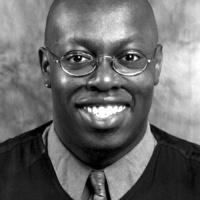
Richard Pitt
Related Authors
Chris Corkery
The Australian National University
Jessica Polka
Harvard Medical School
Yarazeth Medina
University of Maryland Baltimore County
John G. Phillips
University of Tulsa
Travis T York
American Association for the Advancement of Science (AAAS)








Uploads
Books by Richard Pitt
"Beyond The PhD" draws on a mixed-methods approach to analyze the characteristics, experiences, and motivations of this substantial, but poorly understood, group of STEM trainees.
Richard N. Pitt draws on over 100 in-depth interviews with Black Pentecostal ministers in the Church of God in Christ--both those ordained and licensed and those aspiring--to examine how these men and women experience and pursue “the call.” Viewing divine calling as a social process as much as it is spiritual one, Pitt delves into the personal stories of these individuals to explore their work as active agents in the process of fulfilling their calling.
In some cases, those called cannot find pastoral work due to gender discrimination, lack of clergy positions, and educational deficiencies. Pitt looks specifically at how those who have not obtained clergy positions understand their call, exploring the influences of psychological experience, the congregational acceptance of their call, and their response to the training process. He emphasizes how those called reconceptualize clericalism in terms of who can be called, how that call has to be certified, and what those called are meant to do, offering insight into how social actors adjust to structural constraints.
Papers by Richard Pitt
Talks by Richard Pitt
"Beyond The PhD" draws on a mixed-methods approach to analyze the characteristics, experiences, and motivations of this substantial, but poorly understood, group of STEM trainees.
Richard N. Pitt draws on over 100 in-depth interviews with Black Pentecostal ministers in the Church of God in Christ--both those ordained and licensed and those aspiring--to examine how these men and women experience and pursue “the call.” Viewing divine calling as a social process as much as it is spiritual one, Pitt delves into the personal stories of these individuals to explore their work as active agents in the process of fulfilling their calling.
In some cases, those called cannot find pastoral work due to gender discrimination, lack of clergy positions, and educational deficiencies. Pitt looks specifically at how those who have not obtained clergy positions understand their call, exploring the influences of psychological experience, the congregational acceptance of their call, and their response to the training process. He emphasizes how those called reconceptualize clericalism in terms of who can be called, how that call has to be certified, and what those called are meant to do, offering insight into how social actors adjust to structural constraints.